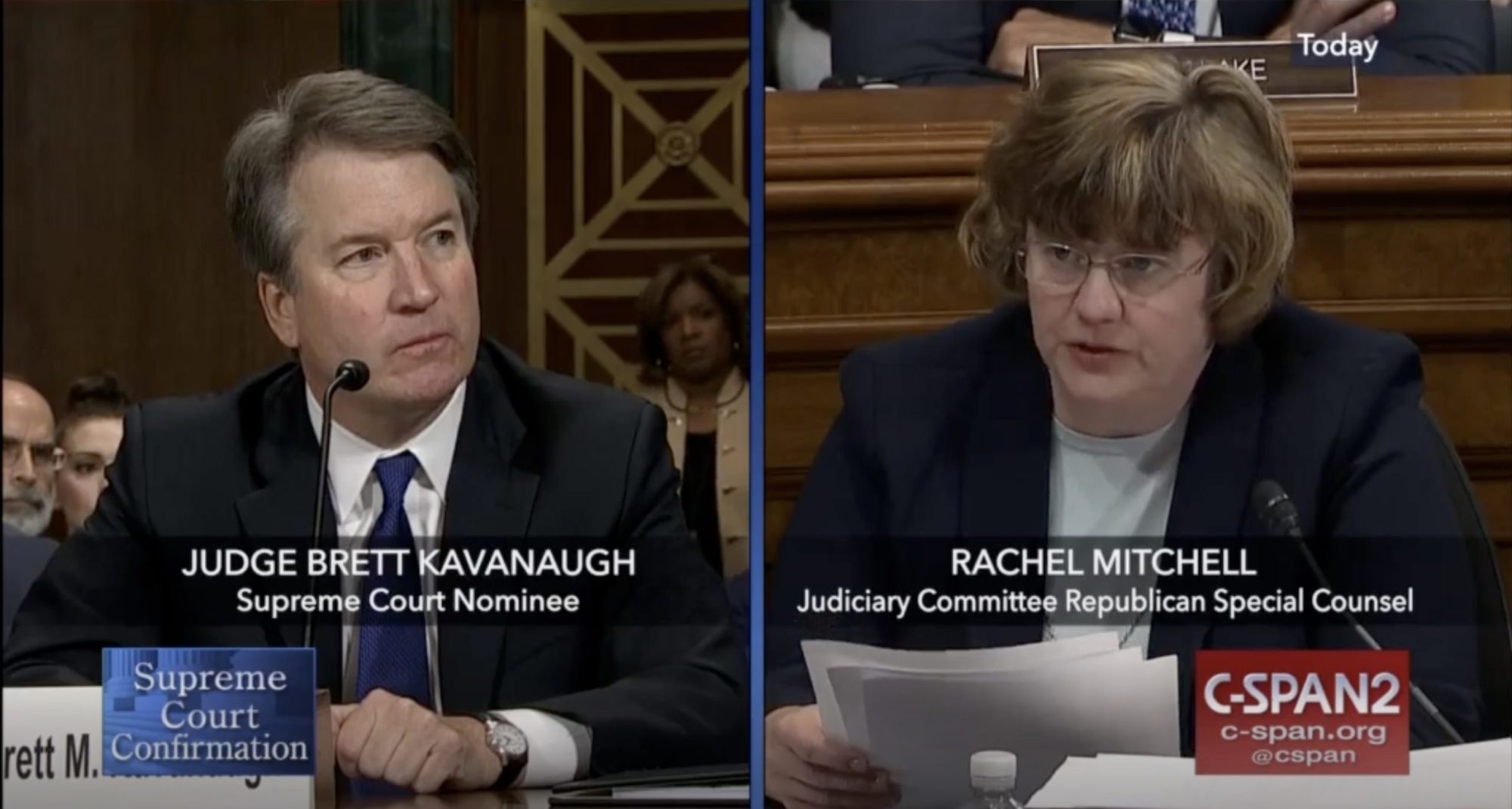Memphis Ousts DA and Judge Who Oversaw Its Notoriously Harsh Court System
Officials in Tennessee’s Shelby County have drawn national scrutiny for violating the rights of Black children and for throwing the book at a Black activist who tried registering to vote.
Daniel Nichanian | August 5, 2022


Voters in Shelby County swept away a slate of tough-on-crime officials on Thursday, ushering in a new era for criminal justice in Tennessee’s most populous county, home to Memphis.
Shelby County has been notorious for punitive practices that leave people languishing in jail for years without a conviction and fuel harsh youth prosecution, largely against Black residents. Local advocates have fought for years to change the system. The county was under federal monitoring by the U.S. Department of Justice for violating the rights of Black children between 2012 and 2018. In 2018, a DOJ report found continued violations and discrimination in juvenile courts, and characterized the policies of the district attorney’s office as a “toxic combination for African-American youth.”
The local officials who oversaw that system, District Attorney Amy Weirich and Juvenile Court Judge Dan Michael, were both ousted on Thursday. The winners, Steve Mulroy in the DA race and Tarik Sugarmon in the juvenile judge race, ran on reform agendas and secured eight-year terms.
Mark Ward, a local criminal court judge, also appears to have lost his re-election bid. Ward sparked an outcry earlier this year for sentencing Pamela Moses, a Black activist who was erroneously told by a state agency that she was eligible to register to vote, to six years in prison. That case was prosecuted by Weirich’s office, and Moses decried the aggressive charges as a scare tactic.
“I’m very excited,” Raumesh Akbari, a Democratic state senator from Memphis who champions criminal justice reform, told Bolts as she was leaving Mulroy’s victory party. “I think it’s a new day in Shelby County, with a new district attorney and new juvenile court judge, and it’s gonna be a totally different approach to how we handle the criminal justice system in Shelby County.”
Weirich, a Republican, won her last DA race, in 2014, by a nearly two to one margin. While Shelby is a blue-leaning county, Tennessee holds general elections for local offices over the summer, and the resulting lower turnout can scramble expectations. But on Thursday, Mulroy, a Democrat, defeated Weirich by a margin of 56 to 44 percent. In the nonpartisan race for juvenile judge, Sugarmon won by 10 percentage points, in a rematch of the race he lost in 2014.
The DA race is one of the first elections to take place in the wake of the U.S. Supreme Court’s Dobbs decision overturning federal protections for abortion rights. A ban on abortions is now in effect in Tennessee, which Mulroy pointed to as a critical issue for the campaign. He attacked Weirich for lobbying on behalf of a “fetal assault” bill in the past, and vowed that prosecuting abortion cases would be a “very low priority” for his office. He has not outright ruled out such charges, saying in part that taking a blanket stance may trigger retaliation by GOP politicians; on the same day as Mulroy’s win, the governor of Florida indefinitely suspended a local prosecutor who said he would not prosecute abortions.
Akbari told Bolts that she thinks abortion “definitely made a difference” in the race, noting that Tennesseans voted just two days after Kansas rejected an effort to erode abortion rights. “This is a big deal that impacts women and families across this country.”
The DA race also unfolded in the wake of the prosecution against Moses. Faced with the state’s extremely strict and complicated felony disenfranchisement laws, Moses had received written guidance from a state agency that she was eligible to get her voting rights restored, but when she acted on that guidance that turned out to be erroneous, Weirich’s office threw the book at her andWard sentenced her to six years in prison after accusing her of “tricking” the probation’s office. After The Guardian’s Sam Levine revealed holes in the case, Ward overturned the conviction and Weirich dropped the charges.
“I think the goal was to scare people, but it could boomerang,” Moses told Bolts in March after being released from prison. Ward and Weirich both lost their races on Thursday.
In voiding Moses’s conviction in February, Ward faulted Weirich for failing to disclose evidence that Moses had been told by a probation officer she was eligible to vote. Weirich’s office has drawn attention from the Tennessee Board of Professional Responsibility and from the media for withholding evidence in the past, including in a New York Times Magazine investigation in 2017.
Local and national advocates told Bolts that the case against Moses was a window into other patterns of harsh and unequal treatment in Shelby County as well. They fault the DA’s office and local judges for overcharging defendants, imposing a harsh “trial penalty,” and for ramping up pretrial detention. Human rights organizations have denounced local bail practices as discriminatory and unconstitutional, and a report released last year by a court-appointed inspector documented that people are held pretrial in the county jail “for months or years.”
Mulroy ran for DA on planks associated with criminal justice reform, including working to reduce pretrial detention and decreasing the volume of prosecutions for lower-level charges like drug possession. He told Bolts in a phone interview this spring that the DA’s office should not have prosecuted Moses and that, as DA, he would try to counter any chilling effect felt by residents who are unsure about their voter eligibility.
Mulroy said that he wanted to confront the “demonstrated recent history of racial discrimination in our justice system,” telling Bolts that, “I think any district attorney should make it a high priority to try to reduce the obvious and blatant racial disproportionality in our criminal justice system. That goes double for somebody in Shelby County.”
“Excessive bail and excessive seeking of pretrial detention, along with adult transfer of juvenile cases, have a hugely disproportionate minority contact rate,” he added.
The disparities in prosecution and sentencing extend into the electoral realm due to felony disenfranchisement rules. 21 percent of Black Tennesseans were stripped of the right to vote in 2020, compared to 7 percent of other adults, which barred thousands of Shelby County residents from voting on Thursday.
Weirich seized on her opponent’s commitments to say he would endanger safety in Shelby County, and she ran a campaign centered on promises of law and order. “I believe violent offenders should go to prison,” she wrote on Facebook last week. “If you do too, please vote for me.”
“The most dangerous words in Shelby County would be ‘DA Steve Mulroy,’” that statement also said.


But Weirich’s critics scoffed at the implication that her policies were more effective to bring public safety, and point out that violent crime and murders have increased since she came into office. “If what they’re doing, this tough on crime stance was working, then there wouldn’t be a need to have reform,” Akbari said. “It’s not. It’s costing states, cities and counties an exceptional amount of money. Lives are destroyed by it, communities are destroyed by it.”
The county’s treatment of Black children was a central theme in Mulroy and Sugarmon’s campaigns. Besides the DOJ’s 2018 report on systemic rights violations, local advocates from organizations such as Memphis for All and Just City have assailed continued disparate treatment, and earlier this year they demanded a racial equity audit of local decisions. Data released by the county shows, for instance, that Black youths were held in pretrial detention nearly three times as often as white youths in 2021. And nearly every single minor who gets prosecuted as an adult, facing far tougher sentences, is Black; the raw numbers are high, too, as Shelby County prosecutes far more children as adults than other counties.
In Tennessee, the DA seeks a child’s transfer into adult courts, and the juvenile court judge then decides on the transfer. This judge also gets to appoint the magistrates who hear the cases.
Michael, the juvenile court judge who lost his re-election bid on Thursday, resisted the federal monitoring, calling for it to end until Trump administration officials granted his wish and ended the oversight in 2018. He defended his record against critics during the campaign. “It’s a very, very difficult decision to make,” he said of his decisions to transfer children into adult court.
Sugarmon, the victorious candidate against Michael, has called for the DOJ to resume its monitoring. He told MLK50 that he would allow fewer children to be transferred into adult court, and that he wants fewer children to be prosecuted in the first place. Black children were nearly five times more likely than white children to have cases referred to the juvenile court in 2021.
Mulroy echoes Sugarmon on the issue. “I think we also need to call for the U.S. Justice Department to resume its monitoring of our juvenile court,” he told Bolts.
The incoming DA has not ruled out seeking adult prosecutions of minors, though he told the Daily Memphian, “we would create a strong presumption against transfer. Absent some very, very severe circumstances, adult transfer needs to be a last resort.”
To Akbari, the election results prove that local residents are looking for a change from the status quo. “It’s easy to just throw somebody in jail. It’s hard work to actually do reform and get to the root of what causes crime, and to make sure that juvenile offenders do not become adult offenders,” she said. “And I think this vote proves that people are ready for something different. You can’t keep doing the same thing and expecting different results.”




